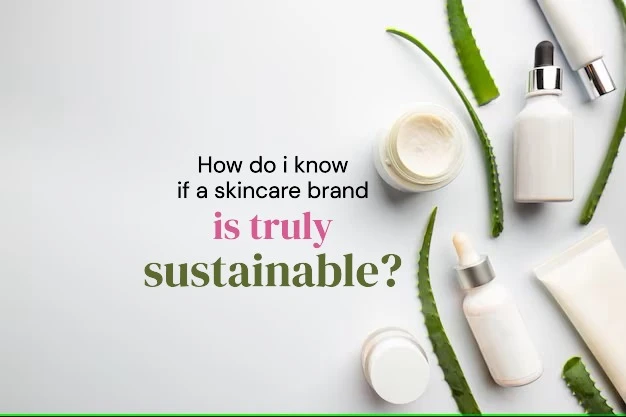How do i know if a skincare brand is truly sustainable?
How Do I Know if a Skincare Brand Is Truly Sustainable?
As environmental awareness grows, many skincare brands are marketing themselves as “sustainable.” But true sustainability goes far beyond recyclable packaging or eco-friendly buzzwords. It involves a comprehensive approach that respects the planet, people, and ethical business practices. So, how can you tell if a skincare brand is genuinely sustainable and not just greenwashing? Here are key factors to look for:
1. Ingredient Sourcing and Transparency
A sustainable skincare brand should clearly disclose where and how their ingredients are sourced. Look for:
-
Ethically sourced ingredients that do not contribute to deforestation or habitat destruction.
-
Use of certified organic or wild-harvested botanicals.
-
Avoidance of endangered or over-harvested plants like sandalwood or frankincense unless certified sustainable.
Transparency is a major indicator—brands that are open about their ingredient origins and sourcing methods are usually more trustworthy.
2. Eco-Conscious Packaging
Packaging is a big part of sustainability. True eco-friendly brands make intentional choices such as:
-
Recyclable, refillable, or compostable packaging.
-
Use of glass, aluminum, or post-consumer recycled plastic instead of single-use plastic.
-
Offering refill programs or incentives to return empty containers.
Minimalist and biodegradable packaging shows a commitment to reducing environmental impact.
3. Certifications to Look For
Certifications can help you identify which brands meet sustainability and ethical standards. Some trustworthy ones include:
-
COSMOS Organic or Natural: Ensures sustainable farming and ingredient sourcing.
-
EcoCert: Verifies environmentally responsible products and manufacturing.
-
Leaping Bunny or PETA: Indicates cruelty-free practices.
-
Fair Trade: Confirms that ingredients were sourced with fair labor practices.
However, beware of self-created labels that sound official but have no third-party verification.
4. Carbon Footprint and Manufacturing
Check if the brand addresses their carbon emissions and manufacturing processes. Sustainable companies often:
-
Use renewable energy in production facilities.
-
Offer carbon-neutral shipping or offset emissions through tree planting or similar initiatives.
-
Manufacture locally to reduce transportation emissions.
If a brand publicly shares its sustainability goals, impact reports, or lifecycle assessments, that’s a sign they’re actively working to minimize harm.
5. Cruelty-Free and Vegan Options
While not all sustainable brands are vegan, cruelty-free testing is a key ethical marker. Look for:
-
No animal testing at any stage of production.
-
Clear labeling for vegan-friendly formulas (no beeswax, lanolin, or carmine).
-
Partnerships with cruelty-free certifiers.
6. Corporate Values and Accountability
Genuinely sustainable brands usually support social responsibility too. They may:
-
Support community trade and small-scale farmers.
-
Promote diversity and inclusion within their company.
-
Give back to environmental or humanitarian causes.
Look for brands that publish impact reports, set transparent goals, and are open about their challenges as well as successes.
Final Thoughts
Sustainability isn’t just a label—it’s a practice. To know if a skincare brand is truly sustainable, go beyond packaging and promises. Read the labels, check the website for transparency, look for trusted certifications, and research the company’s practices. A truly sustainable brand will show responsibility in every step of its supply chain—from farm to face.

Related Blog
What Causes Oily Skin and Can It Be Managed Naturally? Exploring Root Causes and Gentle Solutions
Aug 2, 2025 by Admin
General
What Are the Signs That You Have Sensitive Skin? Key Symptoms to Help You Identify This Delicate Skin Type
Aug 1, 2025 by Admin
General